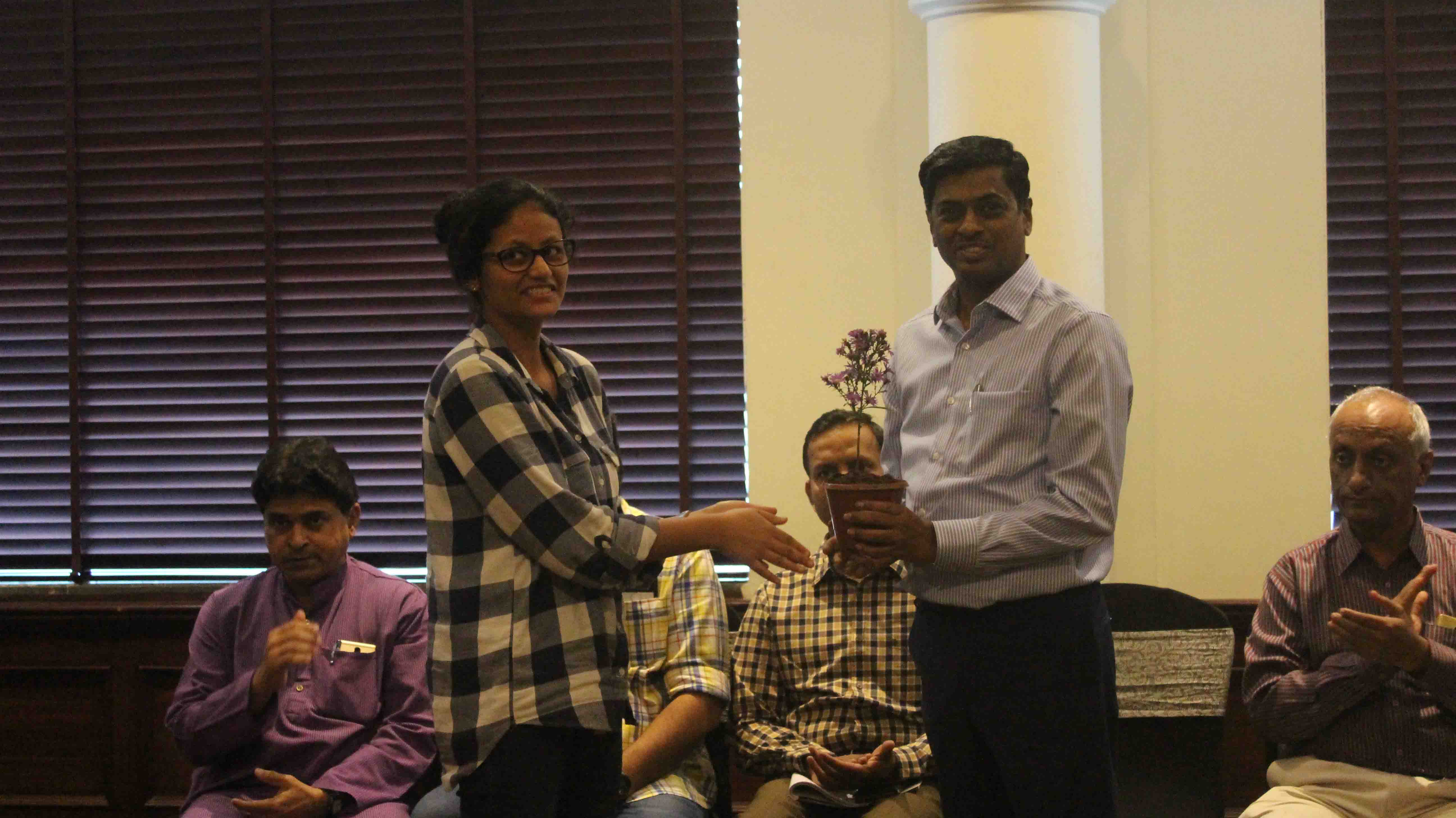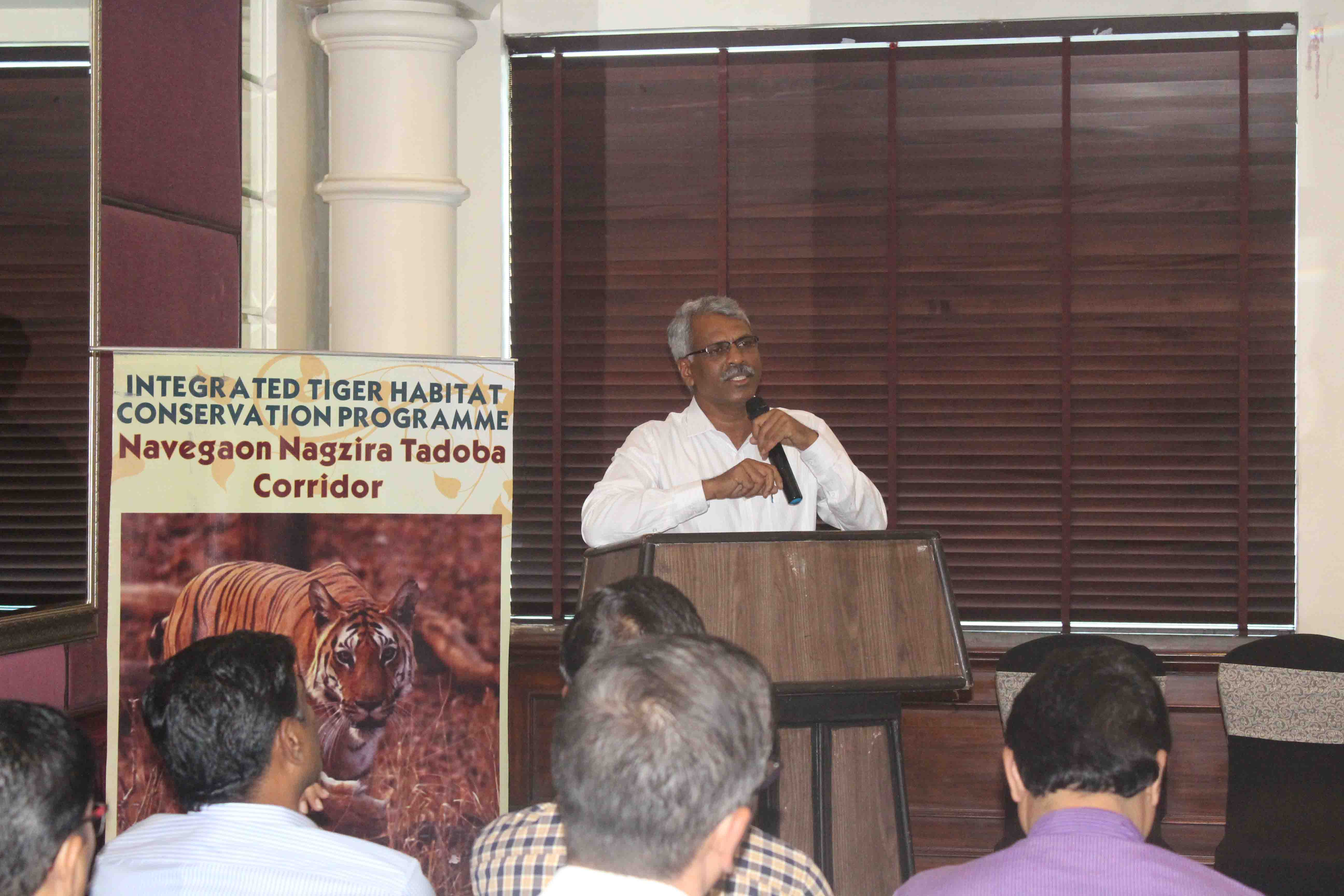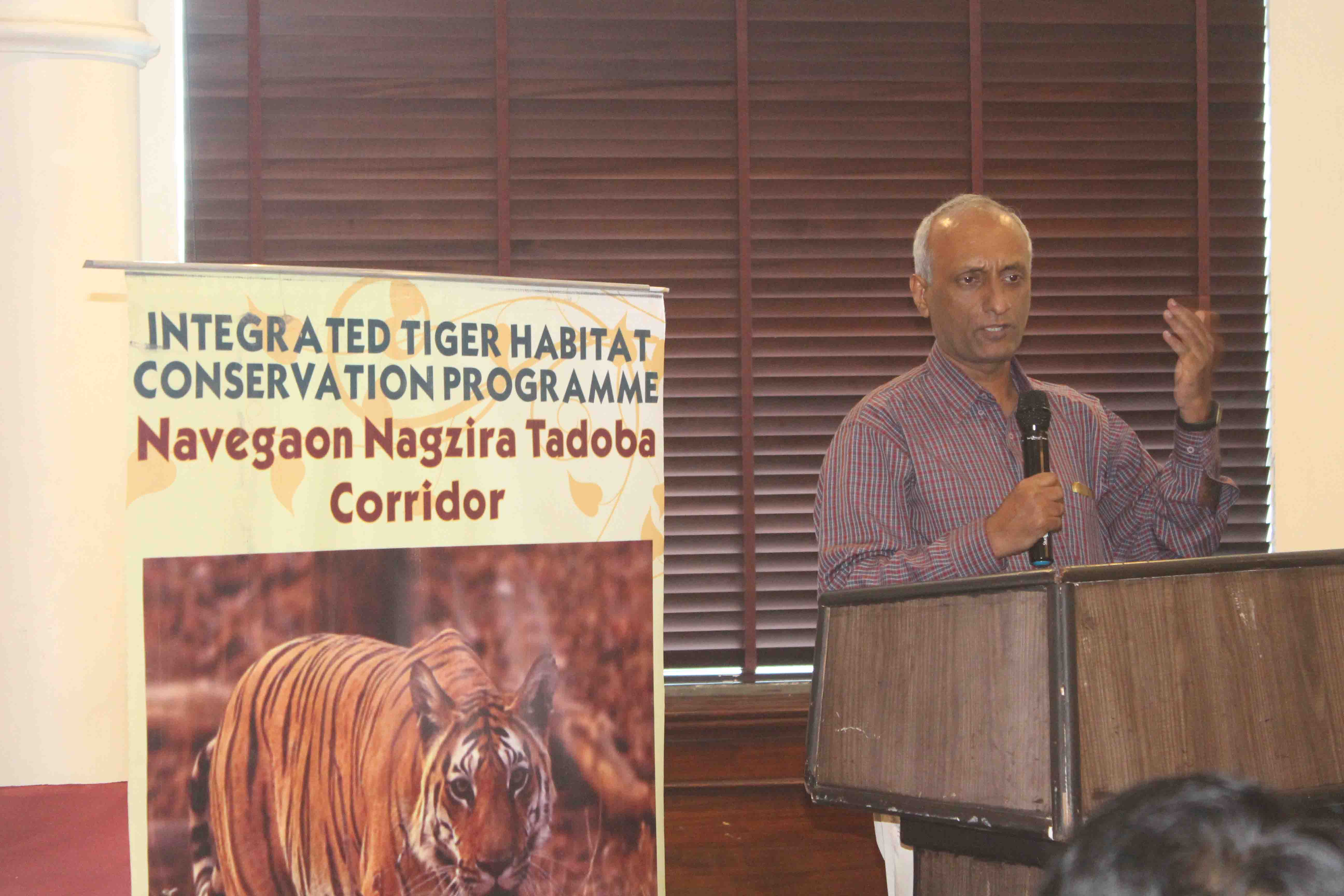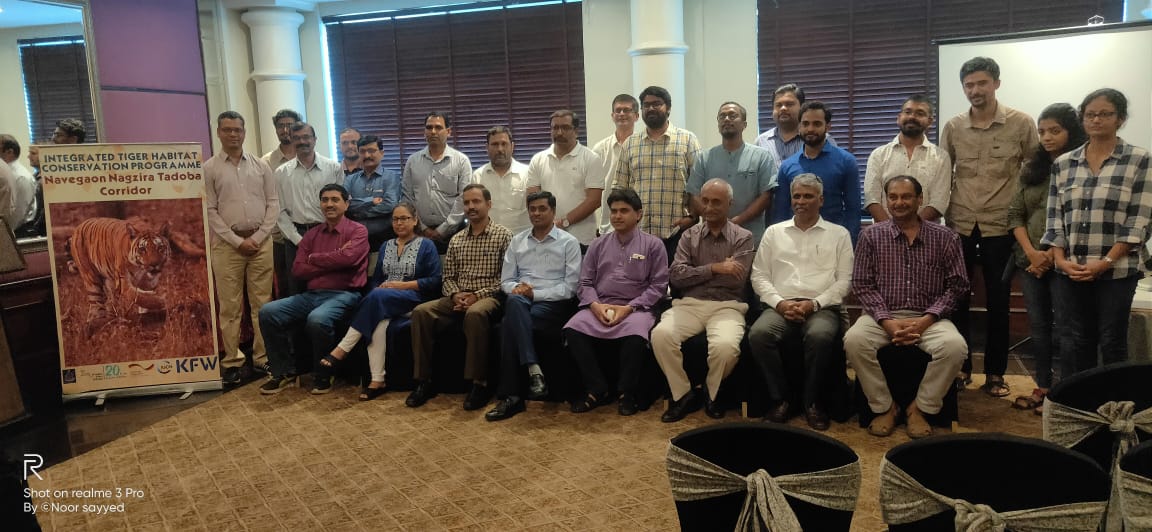August 28, 2019, Nagpur: A workshop aimed to bring together journalists from Nagpur, Chandrapur and Gondia, was organised today at Nagpur to discuss how media can benefit conservation actions through factual and positive reporting.
Fifteen journalists and editors representing media houses like Lokmat, Dainik Bhaskar, Navhbarat, Sakal, Indian Express, Times of India, News 18, Lokmat Times, Hitvada, Lokshahi Varta and Tarun Bharat attended the workshop.
Shri M.K Rao, IFS, Principal Chief Conservator of Forests, Information Technology and Policy Maharashtra Forest Department; Shri. Ravikiran Govekar, IFS, Field Director, Pench Tiger Reserve; Shri M. Ramanujam, IFS, Field Director, Nagzira-Nawegaon Tiger Reserve were invited as the chief guests on the occasion.
The key highlights of the workshop were elaboration of case studies of situations where positive reporting has catalyzed and benefitted conservation actions, especially in areas where human-wildlife conflict’ has been a persistent issue, by the resource persons from media houses.

The program was inaugurated by Shri. M. K. Rao, PCCF (ITP), welcoming the workshop participants, and elaborating the need of media’s support for sustainable conservation. “Several of my media friends have stood up for wildlife and their needs in the past, and wildlife today need more such friends in the media, who can take facts and real issues back to the people through a medium that they comprehend easily”, stated the PCCF, in his opening remarks.
Following this Shri.Ravikiran Govekar added, “Anthropomorphizing behaviour towards wild animals creates a negative impact on the ecological behaviour of the animal and media plays a catalyzing role in changing such behaviour in larger interest of conservation.”

Mr.Virat Singh, Special Correspondent DNA, Mumbai elaborated a case study from Sanjay Gandhi National Park, where media, scientists and the forest department have been working together for years to change mindset of local people and develop their capacity to live with urban leopards. He emphasized, “media has a major role in influencing the way people think and react, as well as policy decisions, and hence creating fact based stories that focusses more on the actual causes of situations, can greatly help people understand the reasons, and therefore help in changing situations. This is exactly what we did in SGNP to tackle human-leopard conflict.”
Mr. Shailesh Pandey, Executive Editor, Sakal talking to the attendees on issues in rural reportage, stated that such workshops should be conducted regularly on-ground for reporters who report from rural areas and are closer to the conflict areas. “Efforts should be made through these workshops to sensitise the local reporters on collecting facts rather than just reporting the incidents”.

Mr. Alok Tiwari, Deputy Resident editor, TOI Nagpur added, “Media has grown sensitive and more aware of conservation issues as was in eighties. The Sariska and Panna Tiger stories changed the way of wildlife reporting at the end of 20th century. Today the media has started weighing the development initiatives to a greater cost of environment and human survival”.
Vivek Deshpande said, “Validation of reporting with facts is essential to present the true picture without being influenced by feelings. It is also important to compare some of these with previous work to analyse and understand the true picture especially in human wildlife cases”. He also emphasized on media person actually going on field to validate facts before publishing.

Mr. Ramanujam, IFS, Field Director- NNTR, shared some of his experiences wherein the media helped positively in overcoming situations.
Mr. Prafull Bhamburkar, Senior Advisor, WTI thanked all the participants for making the workshop successful and informed that there will be more such workshops with media in Chandrapur and Gondia in the coming months incorporating the suggestions and learnings from this one.